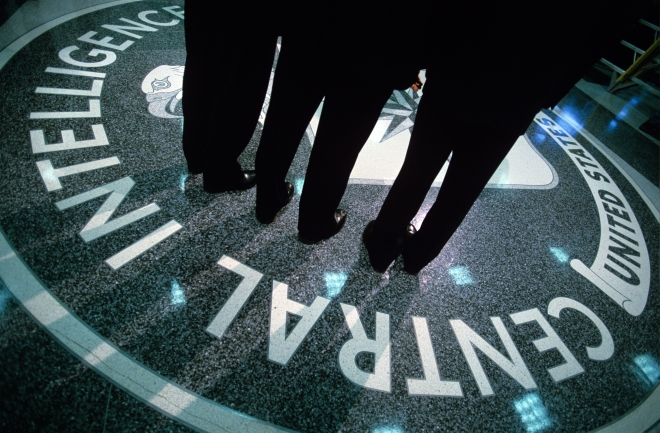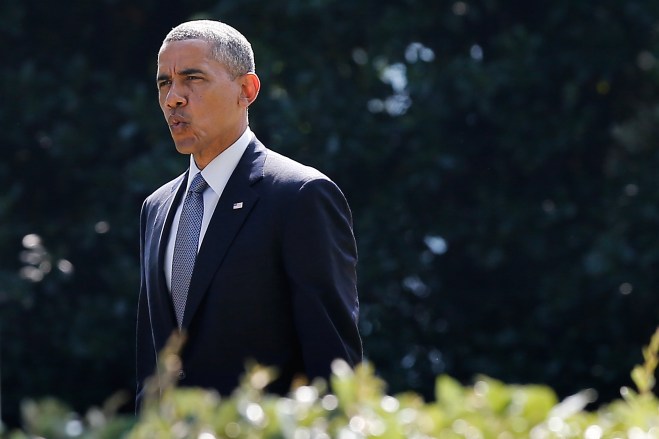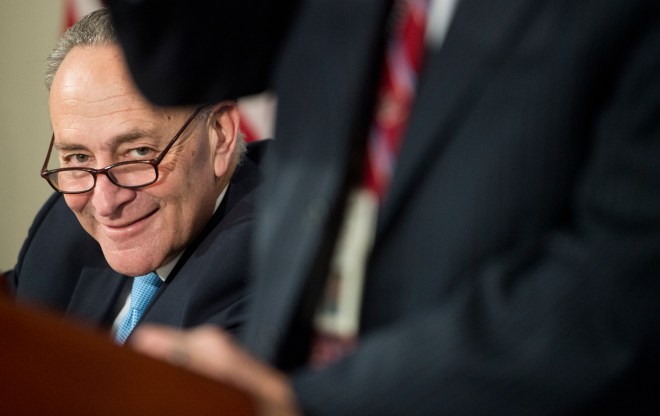[Re-posted from earlier today]
His interview last night is worth revisiting again. He says what he has previously said – adding nothing to the factual record, and addressing none of the specifics in the report. But he is also clearly rattled. He is used to proclaiming categorical truths about things he knows will never be made public. He is used to invoking what he says he knows from secret intelligence without any possibility of being contradicted. This interview is the first time he has made statements about torture that can be fact-checked by the record. And, he is proven to be a liar, as shown below.
When someone presents a public official with a large tranche of the CIA’s own documents and operational cables and internal memos, and that paper-trail contradicts previous statements by the public official, he has a couple of options. The first is to point out where any particular allegation is factually wrong, to show a flaw in the data, to defend himself factually from the claims presented. The second is to flail around, dodge any specifics and double-down on various talking points that evade the central facts at hand.
Cheney picked the second path. That tells you a huge amount, it seems to me. He doesn’t address  the mountain of evidence. He is simply ruling it out of bounds – after admitting he hasn’t even read it! If you had a two-bit tax evader who is presented by the IRS with a tranche of his own tax records proving he was delinquent, and he simply insisted that he hadn’t read them and still emphatically denies the charge, he’s self-evidently guilty. Why is this not self-evidently the case with Cheney?
the mountain of evidence. He is simply ruling it out of bounds – after admitting he hasn’t even read it! If you had a two-bit tax evader who is presented by the IRS with a tranche of his own tax records proving he was delinquent, and he simply insisted that he hadn’t read them and still emphatically denies the charge, he’s self-evidently guilty. Why is this not self-evidently the case with Cheney?
His response to the facts as documented is simply: I know otherwise. He gives no specifics. He merely invokes other CIA official denials as an authority – when they too are charged with war crimes. That’s like a gangster claiming he is innocent on the basis of his gang-members’ testimony. He blusters on. In a court of law, his performance would be, quite simply, risible as an act of self-defense. It becomes some primal scream version of “Because I said it worked!”
Now look at what else he said. He describes this as a classic example of politicians throwing the “professionals” under the bus. One is forced to ask: what professionals? All the professionals in interrogation in the military and the FBI were kept out of the torture program, which was assigned to two contractors, who assessed themselves, who had never interrogated anyone in their lives, and who had no linguistic or interrogation backgrounds. What this report does is throw the amateurs under the bus, and among those rank amateurs is Dick Cheney.
When Cheney is asked about a prisoner chained to the ceiling in a cell and forced to defecate on himself in a diaper, he says “I’ve never heard of such a thing.” As if that is relevant. If he hadn’t heard of such a thing, he should have. And if he hadn’t until this week, he could have read about it in the report. And then, revealingly, he immediately gets angry. He expresses no regret and no remorse about another human being’s unimaginable suffering. He cites the alternative to torture – legal powerful, effective interrogation that the report proves gave us great intelligence – as “kiss him on both cheeks and tell us, please, please tell us what you know”. Again, this is risible as an argument.
to the ceiling in a cell and forced to defecate on himself in a diaper, he says “I’ve never heard of such a thing.” As if that is relevant. If he hadn’t heard of such a thing, he should have. And if he hadn’t until this week, he could have read about it in the report. And then, revealingly, he immediately gets angry. He expresses no regret and no remorse about another human being’s unimaginable suffering. He cites the alternative to torture – legal powerful, effective interrogation that the report proves gave us great intelligence – as “kiss him on both cheeks and tell us, please, please tell us what you know”. Again, this is risible as an argument.
In fact, it is prima facie evidence that torture was used as a first resort, and it was a first resort because Cheney already knew it was the only way to get intelligence. How he knew we don’t know. No one in professional interrogation believed or believes it. So you have clear evidence that the decision to torture was taken early on – and nothing was allowed to stand in its way. This was an ideological decision – not a policy judgment based on evidence.
Here’s the truly revealing part. Cheney is told about a prisoner, Gul Rahman, who died after unimaginable brutality – beaten, kept awake for 48 hours, kept in total darkness for days, thrown into the Gestapo-pioneered cold bath treatment, and then chained to a wall and left to die of hypothermia. The factors in his death included “dehydration, lack of food, and immobility due to ‘short chaining.” This is Cheney’s response:
3,000 Americans died on 9/11 because of what these guys did, and I have no sympathy for them. I don’t know the specific details … I haven’t read the report … I keep coming back to the basic, fundamental proposition: how nice do you want to be to the murderers of 3000 Americans?
But Gul Rahman had nothing whatsoever to do with the 9/11 plot.
He had engaged in no plots to kill Americans. He was a guard to the Afghan warlord, Gulbuddin Hekmatyar, part of an organization that began by fighting the Soviets in occupied Afghanistan. It had alliances with al Qaeda at the time, but subsequently engaged in peace negotiations with the Karzai government. His brother claims Rahman was even involved in rescuing Hamid Kharzai in 1994. To equate him with individuals who committed mass murder of Americans or who were actively plotting against Americans is preposterous. He was emphatically not a threat to the US. Yet we tortured him to death. And the man running the torture camp was promoted thereafter.
To put it more bluntly, Cheney’s response is unhinged. It is suffused with indiscriminate rage which is indifferent to such standards as whether the prisoner is innocent or guilty, or even if he should be in a prison at all. He is acting out a revenge fantasy, no doubt fueled in part by the understanding that 3,000 Americans lost their lives because he failed to prevent it – when the facts were lying there in the existing surveillance and intelligence system and somehow never got put together.
What we have here is a staggering thing: the second highest official in a democracy, proud and unrepentant of war crimes targeted at hundreds of prisoners, equating every single one of the prisoners – including those who were victims of mistaken identity, including American citizens reading satirical websites, including countless who had nothing to do with any attacks on the US at all – with the nineteen plotters of one terror attack. We have a man who, upon being presented with a meticulous set of documents and facts, brags of not reading them and who continues to say things that are definitively disproved in the report by CIA documents themselves.
This is a man who not only broke the law and the basic norms of Western civilization, but who celebrates that. If this man is not brought to justice, the whole idea of justice in this country is a joke.
(Photos: scenes from Abu Ghraib prison, showing the results of torture techniques pioneered by Dick Cheney.)





